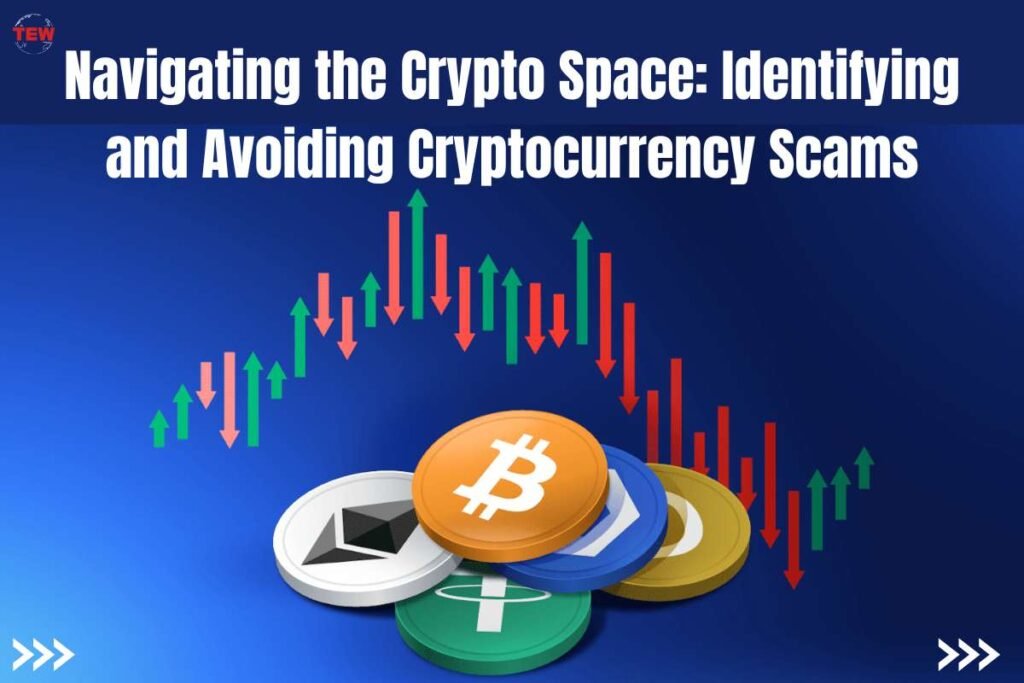Navigating The Cryptocurrency Landscape: A Cautionary Guide To Avoiding Scams
Navigating the Cryptocurrency Landscape: A Cautionary Guide to Avoiding Scams

- What Are Stablecoins And How Do They Work
- The Role Of Blockchain In Revolutionizing The Healthcare Industry
- Revolutionizing The Flow Of Goods: How Blockchain Is Transforming Supply Chain Digitization
- What Are Crypto Vaults And How Do They Enhance Security
- Unlocking The Future Of Property Ownership
The world of cryptocurrency is a complex and rapidly evolving space, full of opportunities for innovation and growth. However, like any high-reward investment, it also has its fair share of pitfalls, particularly when it comes to scammers. As the ecosystem continues to grow and mature, we’re seeing a rise in the number of cryptocurrency scams, many of which can be extremely convincing.
To help you navigate this sometimes treacherous landscape, we’ve put together this article, highlighting some of the most common types of scams you might encounter and offering practical advice on how to avoid them.
Scam 1: The Fake ICO (Initial Coin Offering)
One of the most popular types of cryptocurrency scams is the fake ICO. Scammers set up a website that looks legit, often with fancy graphics, and touting a "surefire" investment opportunity that promises astronomical returns. In reality, there is no project behind it, and investors who put in their money will most likely never see a return.
How to Avoid It: Be cautious of ICOs that are pushing overly aggressive sales tactics, make unrealistic promises, or lack transparency about the team and the project.
Scam 2: The Phishing Scam
Phishing scams are incredibly common in the cryptocurrency space, and they’re very simple to execute. Scammers send out emails, usually masquerading as someone from a known exchange or wallet provider, asking you to provide your account information or login credentials. If you take the bait, you’ll have given the scammer everything they need to steal your coins.
How to Avoid It: Never respond to emails that ask for your personal or account information. Always keep your operating system and software up to date, use a reputable antivirus program, and make sure your firewall is enabled. When accessing your cryptocurrency accounts, always type the URL into your browser instead of clicking on links.
Scam 3: The Celebrity-Shilled Scam
You’ve probably seen it: a Hollywood star or famous music artist flogging some up-and-coming cryptocurrency or "revolutionary" financial product. Usually, this is nothing more than a marketing stunt designed to give the scam a whiff of legitimacy and allure.
How to Avoid It: Never invest in a cryptocurrency or financial product simply because it has a famous name attached to it. Keep your feet on the ground, do your research, and evaluate any investment on its technical merits.
Scam 4: The Free-Airdrop Scam
Free-coin giveaways and airdrops are becoming increasingly popular as a marketing tool to launch new cryptocurrencies. While many of these may be genuine, scammers have cottoned on and are now running fake airdrops that promise you free coins in exchange for sharing your login credentials or paying an upfront fee.
How to Avoid It: Be wary of any offer that seems too good to be true. Don’t give out your login information or send money in exchange for coins that are supposed to be "free".
Scam 5: Ponzi Schemes
Ponzi schemes are another type of scam where returns are promised or "secured" but these actually come from deposits by other investors who, in turn, expect some of the promised high returns. Eventually, it will all come crashing down.
How to Avoid It: Anything that offers unusually high returns, guaranteed and very quickly is not normal. All asset offerings should follow proper regulatory channels; you would at least need detailed information which is always publicly accessible.
Protecting Yourself and Your Wealth in the Cryptocurrency Space
Protecting your wealth and safely navigating the cryptocurrency ecosystem means being aware of these and other potential scams. Here are some general tips to help you stay safe:
- Conduct thorough research before investing in any new cryptocurrency or financial product. Make sure the developers are transparent about the team, and the project is in line with the goals set forward.
- Invest only in well-established exchanges or organizations and steer clear of any that have received poor reviews or been hit by a series of security breaches.
- Be highly cautious of any deal that sounds too good to be true or that you are being pushed to invest in quickly. This could indicate an extremely effective Ponzi scheme.
- Use two-factor or preferably even more authentication such as using an authenticator.
- Use reputable virtual wallets and key storage devices that you fully understand or stick with what you’re already comfortable operating.
Staying vigilant and always remember being scammed in reality though is relatively uncommon. Millions of individuals enjoy strong success and profit, while keeping risk to a necessary low.
